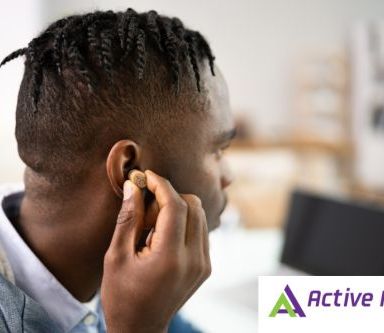
For individuals with hearing loss, technology has opened up a world of possibilities for improving communication and enhancing their quality of life. Two common solutions that offer support are hearing aids Omaha and assistive listening devices (ALDs). It’s important to know the differences between hearing aids and ALDs so you can find the right solution for your hearing needs!
A better understanding of hearing aids
Hearing aids are sophisticated electronic devices designed to amplify and process sound to improve an individual's hearing ability. They are typically prescribed and fitted by an audiologist or hearing health care professional. Below are some of their features!
Customization
One of the primary advantages of hearing aids is their customization. Audiologists tailor hearing aids to match your specific hearing loss, taking into account factors such as lifestyle, personal preferences and the type and degree of hearing loss.
Sound quality
Hearing aids are designed to provide natural and high-quality sound. They can differentiate between speech and background noise, offering improved clarity and reducing listening effort.
Discreet designs
Modern hearing aids come in various styles, including behind-the-ear (BTE), in-the-ear (ITE) and completely-in-the-canal (CIC). Many are discreet and nearly invisible when worn.
Connectivity
Recent advancements in hearing aid technology have introduced connectivity features. Bluetooth-enabled hearing aids can sync with smartphones and other devices, allowing for direct streaming of phone calls, music and more.
Feedback management
Hearing aids include feedback management systems to reduce the occurrence of annoying whistling or feedback noises.
Tinnitus masking
Some hearing aids offer tinnitus masking features to alleviate the symptoms of tinnitus, a common condition associated with hearing loss.
A better understanding of assistive listening devices (ALDs)
Assistive listening devices encompass a wide range of devices designed to enhance sound for individuals with hearing loss. They work alongside or independently of hearing aids and can be used in various listening environments.
Versatility
ALDs are versatile and can be used in combination with hearing aids or as standalone devices. They are suitable for various situations, such as watching TV, attending lectures or conversing in noisy environments.
Specific functionality
ALDs are often specialized for particular tasks. For example, personal FM systems are excellent for classroom settings, while TV listening systems deliver enhanced television audio.
No fitting required
Unlike hearing aids, ALDs typically don't require a fitting process. They are designed for easy setup and use, making them accessible to a broad audience.
A cost-effective solution
ALDs can provide cost-effective solutions for specific listening needs without the investment in hearing aids.
Improved sound quality
ALDs can help you hear better in challenging acoustic environments by directly capturing and amplifying sound sources.
Choosing the right one
The choice between hearing aids and ALDs depends on your hearing needs and lifestyle.
Consider hearing aids when:
-
You have been diagnosed with hearing loss
-
You need personalized, all-day hearing support
-
Connectivity and advanced features are important to you
-
You seek a discreet and custom-fitted solution
Consider ALDs when:
-
You have specific listening challenges
-
You prefer an affordable solution for certain situations
-
You need versatility and portability
-
You want to enhance your hearing without a fitting process
Contact us today for hearing aids Omaha
Hearing aids and assistive listening devices both play essential roles in improving the lives of individuals with hearing loss. Your choice should be based on your unique hearing needs, lifestyle and preferences. Consulting with an audiologist or hearing specialist is the best way to determine the most suitable solution for you. Whether you opt for hearing aids Omaha, ALDs or a combination of both, we’re here to help. Contact us today if you or a loved one are experiencing hearing loss!






Comments